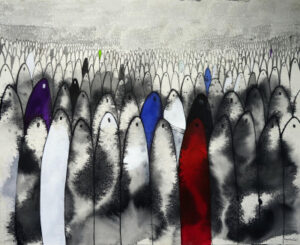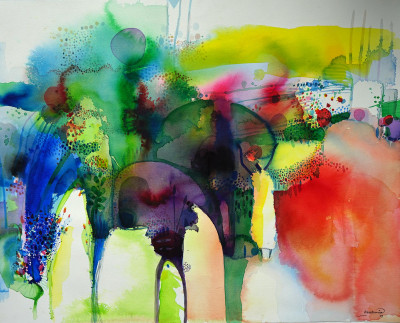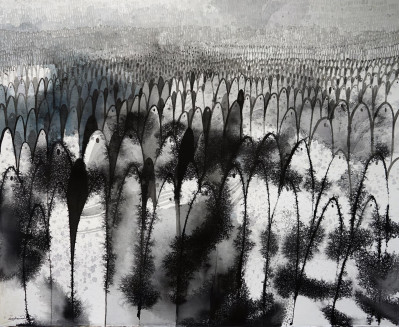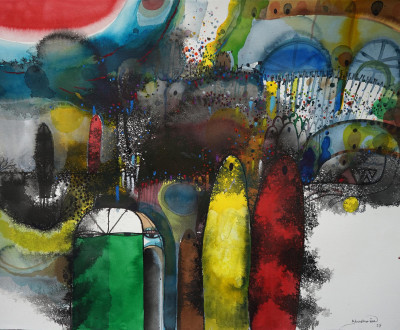
Abushariaa Ahmed: Sudan Series, 2019
About:
Abushariaa a graduate from Sudan University’s College of Fine & Applied Arts in 1990, left Sudan in the mid-90s and spent some years in Kenya. He later lived for a short period in Cologne, Germany before settling in Kampala, Uganda, in 2000, where he still lives and works as a fulltime artist.
Abushariaa’s style is influenced by the pioneers of Sudan’s contemporary art scene, including Ibrahim el Salahi and Rashid Diab. In the 1960s their Khartoum School was recognised as an emergent modernist movement, known for its Sudanawiyya style – a synthesis of Western influences and other traditions that captures Sudan’s diversity.

In the series “Sudan 06-19”, the artist depicts the role of women in the Sudan revolution which reached its peak around June 2019. Women like Alaa Salah who led powerful protest chants that helped fuel the revolution that ousted President Omar al-Bashir from 30 years of authoritarian rule came to symbolize the integral role women played on the front lines of the pro-democracy protests, where they often outnumbered men.

Speaking at United Nations Security Council meeting on women, peace and security in October 2019, Salah said “Women-led resistance committees and sit-ins, planned protest routes and disobeyed curfews, even in the midst of a declared state of emergency that left them vulnerable to security forces. Many were teargassed, threatened, assaulted and thrown in jail without any charge or due process. However, despite this visible role, despite their courage and their leadership, women have been side-lined in the formal political process in the months following the revolution.”

Abushariaa feels the need to share some of these scenarios using his distinctive ink drawings rich with ornamental and patterned symbols of his Nubian culture and occasional Arabic calligraphy.
Abushariaa has exhibited extensively in East Africa and in Canada, the US, Germany, Denmark, Monaco and the UK. His artwork is held in many private and public collections all over the world – in the African Museum of Art in Seoul, South Korea, and in the collection of the World Bank in Washington DC, the USA amongst others.
